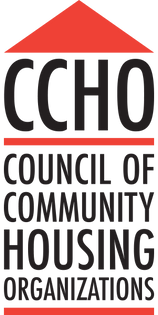“Firms Make Themselves at Home in Bay Area Housing”
SF Chronicle, December 28, 2013
Through the patio doors of the sleek studio apartment in San Francisco's brand-new Nema complex, one catches a glimpse of a 65-inch flat-screen TV next to the saline lap pool. The furnished unit is tricked out with all the comforts of home, from bedding to kitchen supplies to bath towels.
"This is more comfortable than a hotel, and includes access to all the building's amenities, from the solarium to yoga classes," said Anthony Gonzalez, business development associate at Synergy Corporate Housing of San Ramon. "With clients like Yelp, Uber, Dropbox, Zynga, Twitter and Square, we're excited to be here in the middle of the new Mid-Market area."
His company, which recently opened a San Francisco office, is on a spree of renting dozens of apartments in the residential mid-rises now springing up in the city and turning them into corporate housing - temporary digs for executives on assignment from elsewhere, consultants, new hires, interns and others.
"Our goal is to have 400 units in San Francisco by the end of 2014," Gonzalez said. Synergy also has units at Rincon Green, Potrero Launch and 38 Dolores.
The little-known world of corporate housing is surging in the Bay Area thanks to the growing tech economy, while the building boom provides plenty of potential new units.
Oakwood Worldwide, the industry leader, has more than 1,000 units in the San Francisco Bay Area - about three-quarters in Silicon Valley and a fifth in San Francisco - a 25 percent increase in just the past year, said Ric Villarreal, president. It's by far the company's fastest-growing region.
"We've seen enormous growth in this marketplace, primarily from expanding technology companies," he said. "Facebook, Twitter and others look at recruiting as their biggest opportunity for aggressive growth."
In response to demand, Oakwood also added units this year in Mid-Market and SoMa, he said, in the buildings 1188 Mission at Trinity Place and the Archstone South Market Apartments at One St. Francis Place.
Unlike hotels or extended-stay residences, corporate housing requires a minimum 30-day stay - which means travelers are not subject to the hotel occupancy tax.
That's a big concern for some.
"The hotel tax is critical to the city's general fund; it's budgeted at a staggering $274 million in fiscal year 2013-14," said Peter Cohen of the San Francisco Council of Community Housing Organizations. "If short-term housing for workers could be done through the hotel system, it would be more beneficial to the city."
Shortage for locals
In addition, he worries that corporate housing diverts units away from locals who are struggling to find affordable places to live.
"I don't see how it advances our true housing needs for residents," he said. "A significant portion of new housing in San Francisco gets absorbed by nonresidents - transient housing, speculator/investor housing, second or third apartments for folks with primary residence elsewhere. It's troubling."
Corporate housing prices are roughly comparable to a hotel - the Bay Area average is $171 a night - but being located in residential neighborhoods and having a kitchen are plusses for longer-term travelers.
"A hotel room can get claustrophobic in 30 days," said Mark Skinner, a partner at the Highland Group, a hospitality consulting and research firm. "Corporate apartments give a full residential experience."
Staff relocations
Highland pegs the overall U.S. corporate housing market at $2.66 billion. That's only about 2 percent of the overall hospitality industry. Highland's studies show that the biggest users of corporate housing are new employees relocating from elsewhere.
Unlike hotels, providers of corporate housing are nimble, because they simply lease existing units.
"Corporate housing can have a very rapid contraction and expansion in response to economic changes," Skinner said. "That already happened in San Francisco during the dot-com boom and collapse, and now it's happening again."
Simple logistics
How it works is simple. Corporate-housing companies lease apartments in residential buildings, furnish them and then re-rent them at a higher rate to people staying at least 30 days. Most provide other services, such as 24-hour on-call concierges.
For instance, Synergy rents out the slightly under 500-square-foot Nema studio for $139 a night, which comes to $4,170 a month. People who sign long-term leases with Nema would pay about $2,500 for a similar-size unit.
Villarreal said that tech companies are ramping up their intern programs, bringing in summer workers from both college and high school to get a leg up on future recruiting.
Oakwood houses some 400 tech-firm interns annually in this area.
"Companies like to entice these young kids early and make them feel that they are really special," Villarreal said. "They ask us to extend their campus culture of a more open, more unstructured creative environment into their corporate housing."
That can mean catering to them with a mix of services and amenities that sounds lifted from the Vince Vaughn-Owen Wilson comedy "The Internship" about Google.
"These kids need connectivity, since they were just living in their parents' homes or dorm rooms," he said. "We make sure there are places where they can come together as a group after hours. We provide more youthful furnishings; a whiteboard in the kitchen; 50-inch LED smart TVs; a dining table that doubles as a work surface. Music is very important to them, so we make sure we have iHomes and other devices." The company also establishes bike-sharing programs for its travelers and offers delivery of groceries and dry cleaning.
Oakwood is in talks with developers now constructing new buildings in San Francisco and Silicon Valley to add still more units.
"There are quite a few buildings soon to come online that we're monitoring and pursuing," Villarreal said.
